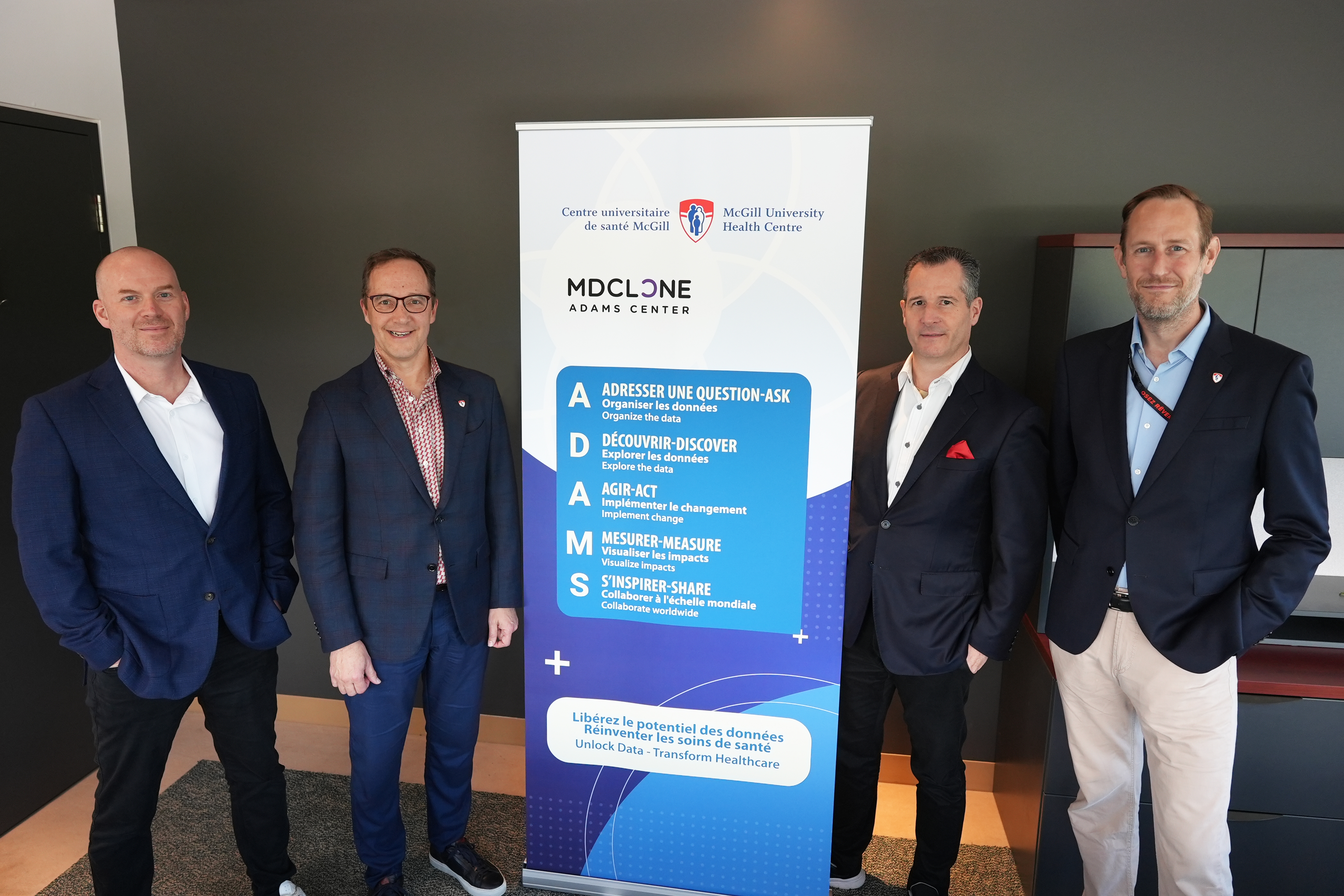Inauguration of the ADAMS Centre at the MUHC
Unleashing the potential of data, reinventing healthcare
In an effort to promote a data-driven culture in healthcare delivery, the McGill University Health Centre (MUHC) is proud to announce the launching of the ADAMS Centre, a facility designated to maximize the potential and facilitate the integration of the new MDClone technology within the hospital's various departments. This data analysis technology will serve as the foundation for decision-making and research to improve the ability to effectively deliver high quality, patient-centred care.
“We are pleased to be able to provide the MUHC with this cutting-edge data analysis platform. Thanks to the ADAMS Centre, the integration of this new tool will take place within a collaborative, multidisciplinary framework. With this initiative, we aim to ensure that all MUHC employees feel engaged in the continuous improvement of our practices,” says Dr. Alan Forster, MUHC Director of Innovation, Performance and Quality.
MDClone: an ingenious tool for analyzing synthetic data
MDClone is an innovative system that enhances the use of data without compromising the confidentiality of personal patient information. Among other things, MDClone enables the creation of synthetic data; this data is generated by a computer algorithm in such a way as to reproduce the statistical characteristics and correlations of real-world raw data, but it does not describe real people. As the data are not linked to actual patients, this is the safest way to ensure total confidentiality of information.
“It is essential for the MUHC to integrate this tool in an ethical and responsible manner. The process offered by MDClone guarantees respect for privacy in compliance with data protection regulations,” says Dr. Forster.
The ADAMS Centre: facilitating the integration of a new tool
The ADAMS Centre is designed to work collaboratively with the various MUHC departments and the Research Institute of the MUHC (RI-MUHC) to integrate this new technology and maximize its benefits. Healthcare professionals and researchers will be able to perform a variety of analyses using data from MDClone to gain an accurate overview of patient trajectories and hospital activities.
‘The results will help guide workers in their decision-making, thereby improving patient care and optimizing workflow within the hospital. Professionals will be able to study the data in order to evaluate resource utilization and better understand different needs, thus improving the efficiency of operations and clinical outcomes,” says Dr. Forster.

Patient-centred financing
The ADAMS Centre has clear objectives for the first year of MDClone deployment. The first is to align the hospital's funding mechanisms based on the quality of care delivered to patients. Teams will develop and deploy measures to assess treatment outcomes and patient satisfaction. As a result, the MUHC will be able to implement financial incentives that promote quality care while ensuring sustainable healthcare practices.
Precise indicators
Secondly, the ADAMS Centre aims to implement a comprehensive hospital-wide performance measurement tool. This tool will enable hospital services to be monitored, evaluated and improved by providing a clear and concise picture of key performance indicators.
“By identifying strengths and areas for improvement, the MUHC aims to foster a culture of continuous improvement at the hospital,” says Dr. Forster.

